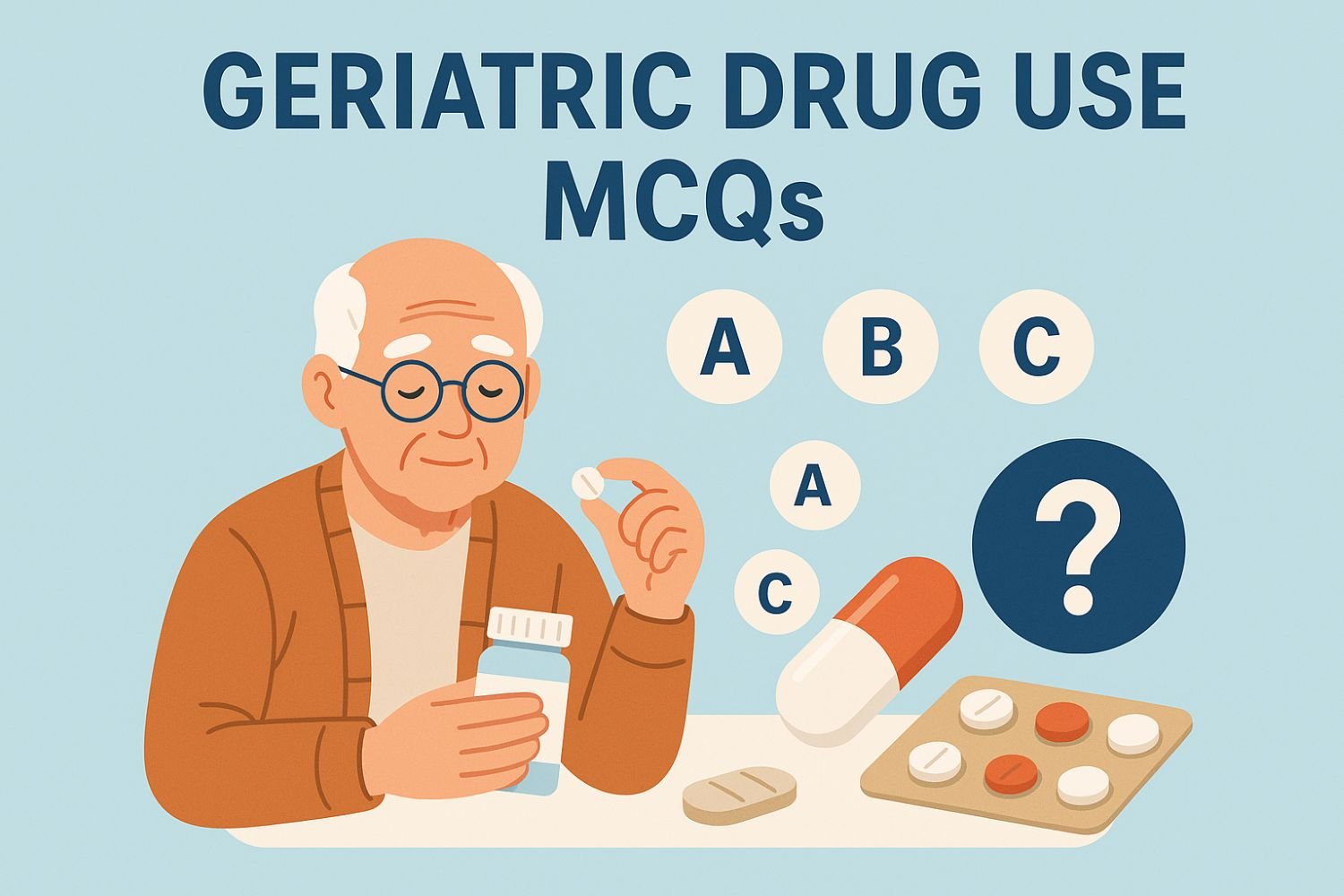

Excel at Geriatric Drug Use MCQs
Medication use in older adults requires extra care and precision. These MCQs test your ability to manage polypharmacy, adjust doses for age-related changes, and prevent adverse drug events. By mastering these concepts, you’ll be ready to improve safety and outcomes for one of the most vulnerable patient groups.
What’s Covered in Geriatric Drug Use?
This subject focuses on the unique challenges of prescribing and monitoring medications in older adults. It explores drug safety, pharmacokinetic and pharmacodynamic changes with aging, and the tools pharmacists use to optimize therapy for geriatric patients.
What Will Geriatric Drug Use MCQs Test?
Core Focus Areas
Pharmacokinetic and Pharmacodynamic Changes:
Expect questions on how aging affects absorption, distribution, metabolism, and elimination—and how these changes impact drug response.Polypharmacy and Deprescribing:
MCQs may test your ability to identify inappropriate medications, streamline regimens, and reduce the risks of polypharmacy.High-Risk Medications:
You’ll see questions on Beers Criteria drugs, fall-risk medications, and those most likely to cause harm in older patients.Disease Management in Older Adults:
Expect scenarios on tailoring therapy for conditions like hypertension, diabetes, heart failure, and dementia.Adverse Drug Reactions:
MCQs may cover recognizing and preventing drug-induced confusion, sedation, or other geriatric-specific complications.Patient Counseling and Caregiver Support:
Look for questions on improving adherence, addressing health literacy, and engaging caregivers in safe medication use.
Why These MCQs Matter
Here’s the thing: older adults are often prescribed multiple medications, making them more vulnerable to adverse events. These MCQs train you to think critically about every prescription, ensuring therapy is both safe and effective.
Tips for Success with Geriatric Drug Use MCQs
1. Know the Beers Criteria:
Familiarize yourself with high-risk medications commonly flagged for geriatric patients.
2. Think Safety First:
When in doubt, pick the answer that reduces harm and minimizes unnecessary medications.
3. Adjust for Organ Function:
Always consider renal and hepatic function when choosing doses for elderly patients.
4. Watch for Polypharmacy Risks:
Choose responses that simplify regimens and avoid drug-drug interactions.
5. Focus on Quality of Life:
The best answers balance disease control with patient comfort and independence.
Building Skills in Geriatric Pharmacotherapy
Mastering Geriatric Drug Use MCQs prepares you to provide safe, thoughtful care for older adults. Each question strengthens your ability to reduce risks, optimize therapy, and support healthier aging.
